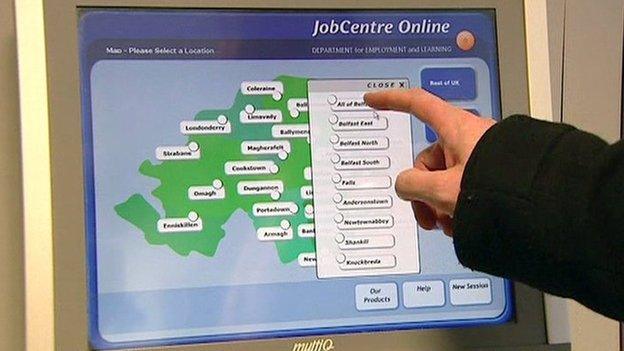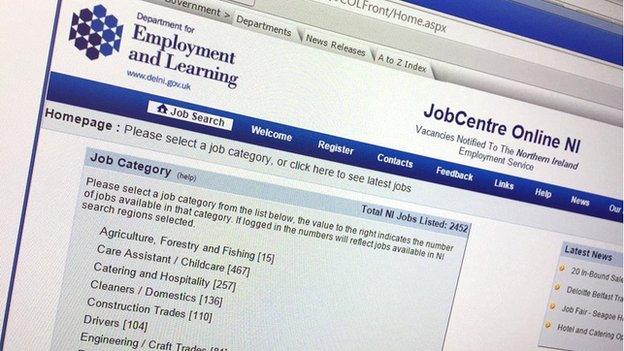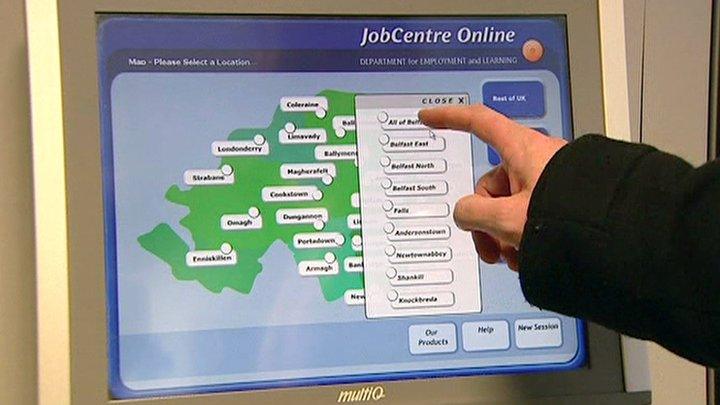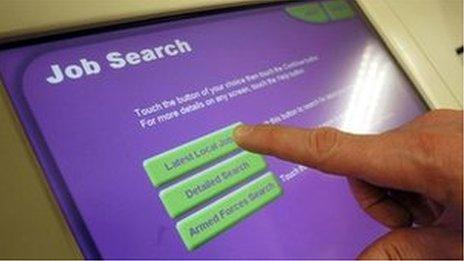Executive strategy to tackle economic inactivity
- Published

Economic inactivity refers to people of working age who are not seeking work
A new executive strategy aims to tackle a decades-old problem of economic inactivity, which in Northern Ireland runs at a higher level than anywhere else in the UK.
Economic inactivity refers to people of working age who are not seeking work.
Its rate in Northern Ireland is just under 27% and can cover students, people with health conditions, or those with caring or parenting responsibilities.
The UK average is 22%.
The strategy, called 'Enabling Success', has been jointly launched by Employment Minister Stephen Farry and Enterprise Minister Arlene Foster.
The strategy involves 11 projects, based on the voluntary participation of individuals.
Three groups will be targeted - those with work-limiting health conditions or disabilities, lone parents and people with caring commitments.
"I recognise that there are some who will never be able to work due to the severity of their health conditions," Mr Farry said.
"However, there are many people with work-limiting conditions who, with the right support, may be able to participate."
Mrs Foster added that the problem could hold back the economy unless addressed.
"The strategy will seek to contribute to an increase in the employment rate in Northern Ireland and to increase our economic competitiveness and productivity in the global market," she said.
By 2030, the strategy hopes to have raised employment levels to above the UK average.
"The current employment rate here is 68.6% compared with a United Kingdom average of 73.4% and achieving this goal will be challenging," Mrs Foster said.
- Published21 January 2015

- Published19 February 2014

- Published19 February 2014

- Published18 December 2013

- Published13 November 2013
